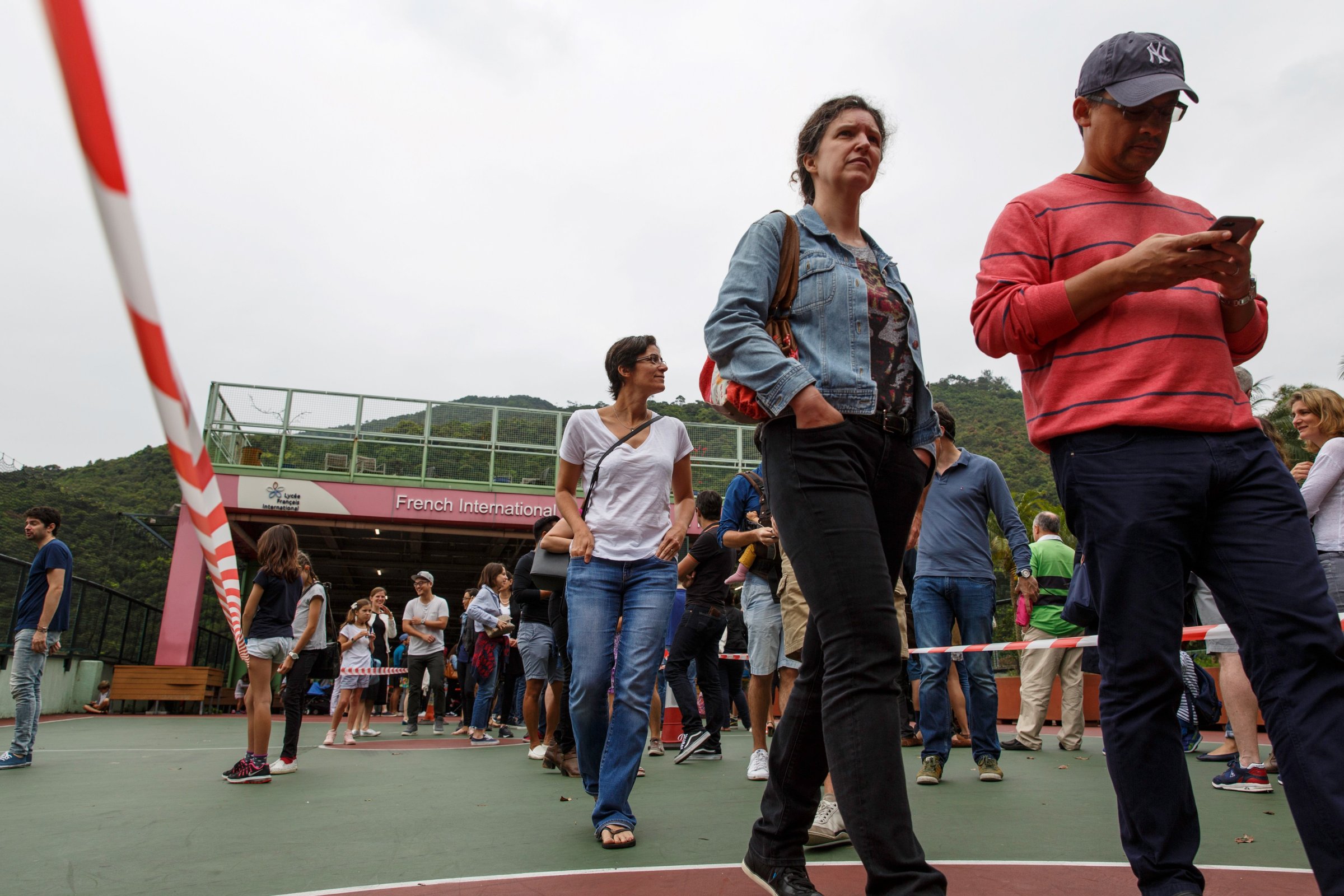
On May 7, France goes to the polls in a historic election that will see two outsiders go head to head to claim the presidency, upending the political establishment along the way. The ballot will be decisive on issues such as globalization, immigration, the Euro and even France’s status within the European Union. And the nation’s expat community will be watching closely.
French nationals living overseas aren’t without political power. More than 1.2 million are registered to vote — about 2.6% of the electorate. While that’s not a huge number, it could prove significant, even decisive, in a closely fought election like this.
On April 23, pro-European independent centrist Emmanuel Macron won 24.% of the vote in the first round of the polls. His rival, and the contender he will face off against in a few days time, was Marine Le Pen of the far-right euroskeptic National Front party, who received 21.3% of the vote. Macron won the first round by about 1 million votes. Thus the 1,264,113 French nationals eligible to vote overseas have powerbroker potential.
That fact has not been lost on the candidates. Macron appeared in person at one of the many rallies his camp held for French voters in London in an effort to court overseas voters.
“Their vote does matter,” says Emilie Tran, a European studies scholar at the Hong Kong Baptist University. “That is why the main candidates have been very proactive in sending emails specifically geared to French citizens living abroad.” Taxation and education for their children are the top issues, she explains, for a group of voters she describes as “generally more educated and professionally successful.”
About 6,000 miles away from France, the global financial and business hub of Hong Kong is home to one of Asia’s largest French expat communities, and one of the fastest growing. According to the French consulate in the territory, there are 13,641 registered French citizens living in the city — more than double the figure of a decade ago — with more than 8,000 of them eligible voters. Photos posted on the consulate’s Facebook page show a significant crowd waiting outside polling stations during the first-round ballot — echoing media reports of high overseas voter turnout elsewhere.
A vote for Macron is “the best way to change our country,” 25-year-old bank analyst Foucault Lamy, told TIME on April 23, as he waited for the first round results to be announced at one of Hong Kong’s chic rooftop bars. “He matches the best of the welfare state with the [age of] globalization we’re living in.”
And French nationals living overseas tended to agree. Macron, the socially liberal former economy minister who supports a tighter, reformed E.U., as well as tax reform and relaxed labor laws, won 40% of the French expat vote. The contrast with domestic voting is stark: In the first round, Le Pen, who has campaigned on a far-right anti-migration, anti-globalization platform, received just 6.5% of the overseas vote, despite winning 21.3% of the vote overall.
French expats in Hong Kong — in the main entrepreneurs, traders and business professionals — have traditionally leaned to the right. In the 2012 election, former President Nicolas Sarkozy won in the city with 73% of the ballots in the runoff, despite ultimately losing the presidency to the Socialist Party’s François Hollande. This year, however, voters in Hong Kong tipped their hats to the 39-year-old centrist Macron.
“What used to be true in the past [about political leanings] is not true anymore,” Marc Guyon, a board member of Les Republicains Hong Kong, told TIME at the sidelines of a local chapter gathering 10 days before the first round.
For one thing, French voters in Hong Kong are getting younger. With a sagging 10% unemployment nationwide in France — and almost 25% for those aged 25 or below — many millennials are leaving for job opportunities elsewhere.
These newcomers range anywhere from “young entrepreneurs, young start-uppers” to “people working in restaurants,” says Sandrine Virginie Hilaire, 46, a lawyer who also heads the Hong Kong branch of En Marche!, Macron’s burgeoning political movement. “It’s people who are facing a very bad economic situation in Europe, especially in France.”
At a drinks party held on the night of first-round voting by the French community in Hong Kong, food trader Valentine Guth, 25, said, “I don’t want to vote for anybody except Macron.”
Le Pen supporters were largely missing from the meet-up — she received just 181 votes in first-round polling in Hong Kong, her anti-globalization message having no resonance for a crowd that has already voted with its feet.
More Must-Reads from TIME
- Donald Trump Is TIME's 2024 Person of the Year
- Why We Chose Trump as Person of the Year
- Is Intermittent Fasting Good or Bad for You?
- The 100 Must-Read Books of 2024
- The 20 Best Christmas TV Episodes
- Column: If Optimism Feels Ridiculous Now, Try Hope
- The Future of Climate Action Is Trade Policy
- Merle Bombardieri Is Helping People Make the Baby Decision
Contact us at letters@time.com